Immediate Impact Without the Need for Thrombolytics in the Treatment of Acute Pulmonary Embolism
Published: 27 September 2022
-
Views:
 2528
2528
-
Likes:
 7
7
-
Views:
 2528
2528
-
Likes:
 7
7
-
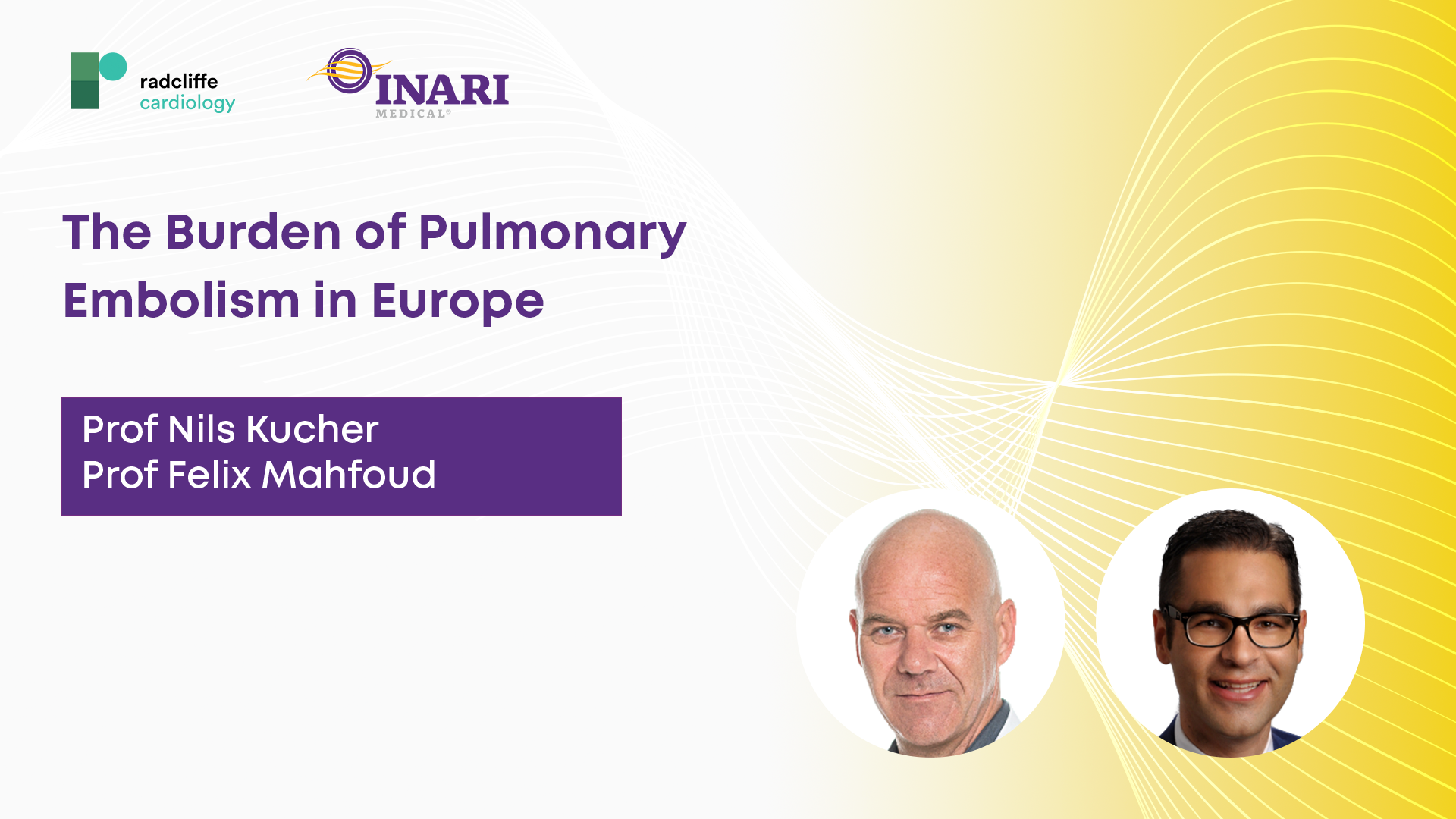 Up Next
Up Next -
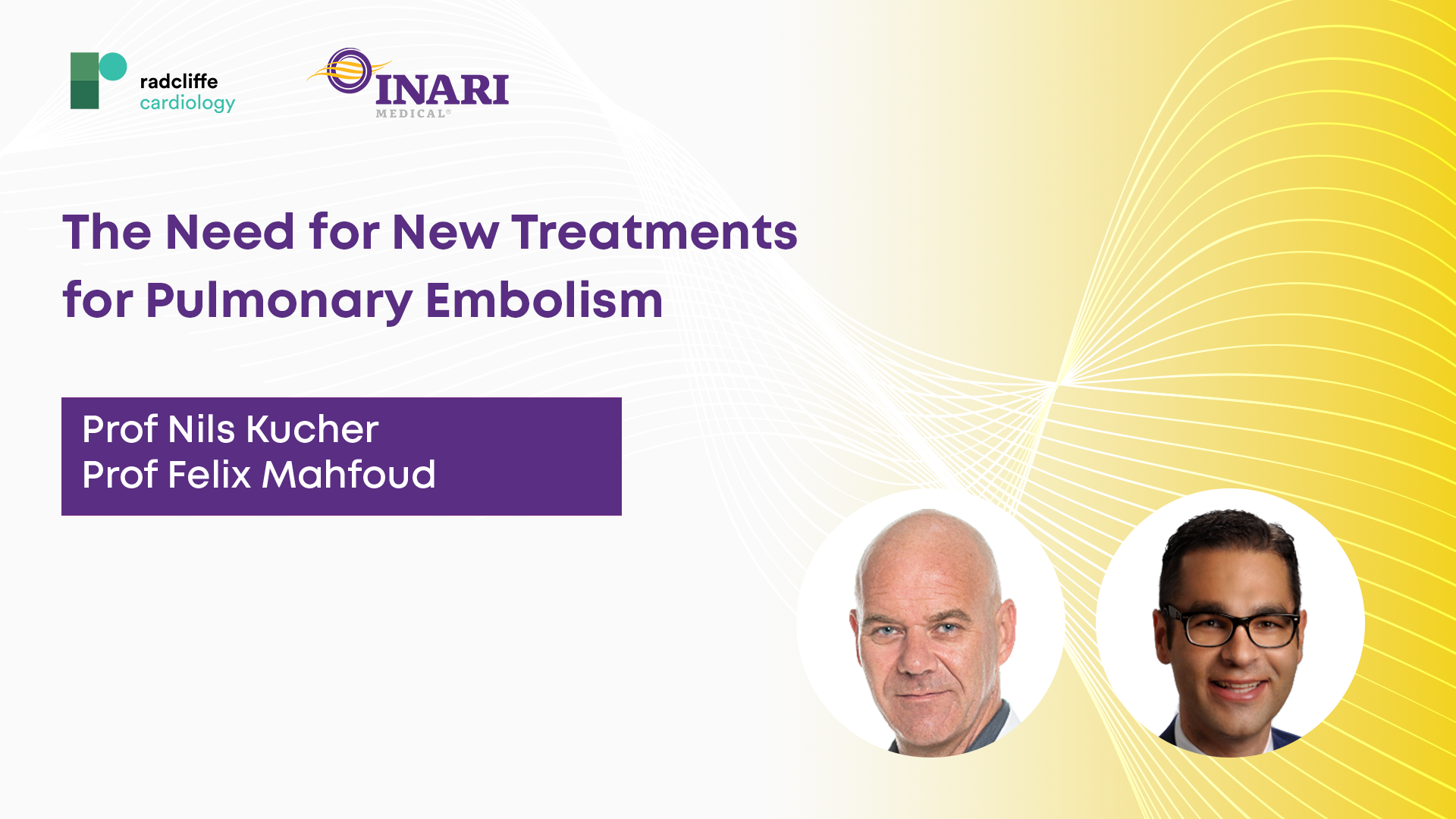 3m 2sPart 1 | Session 2 The Need for New Treatments for Pulmonary Embolism
3m 2sPart 1 | Session 2 The Need for New Treatments for Pulmonary Embolism -
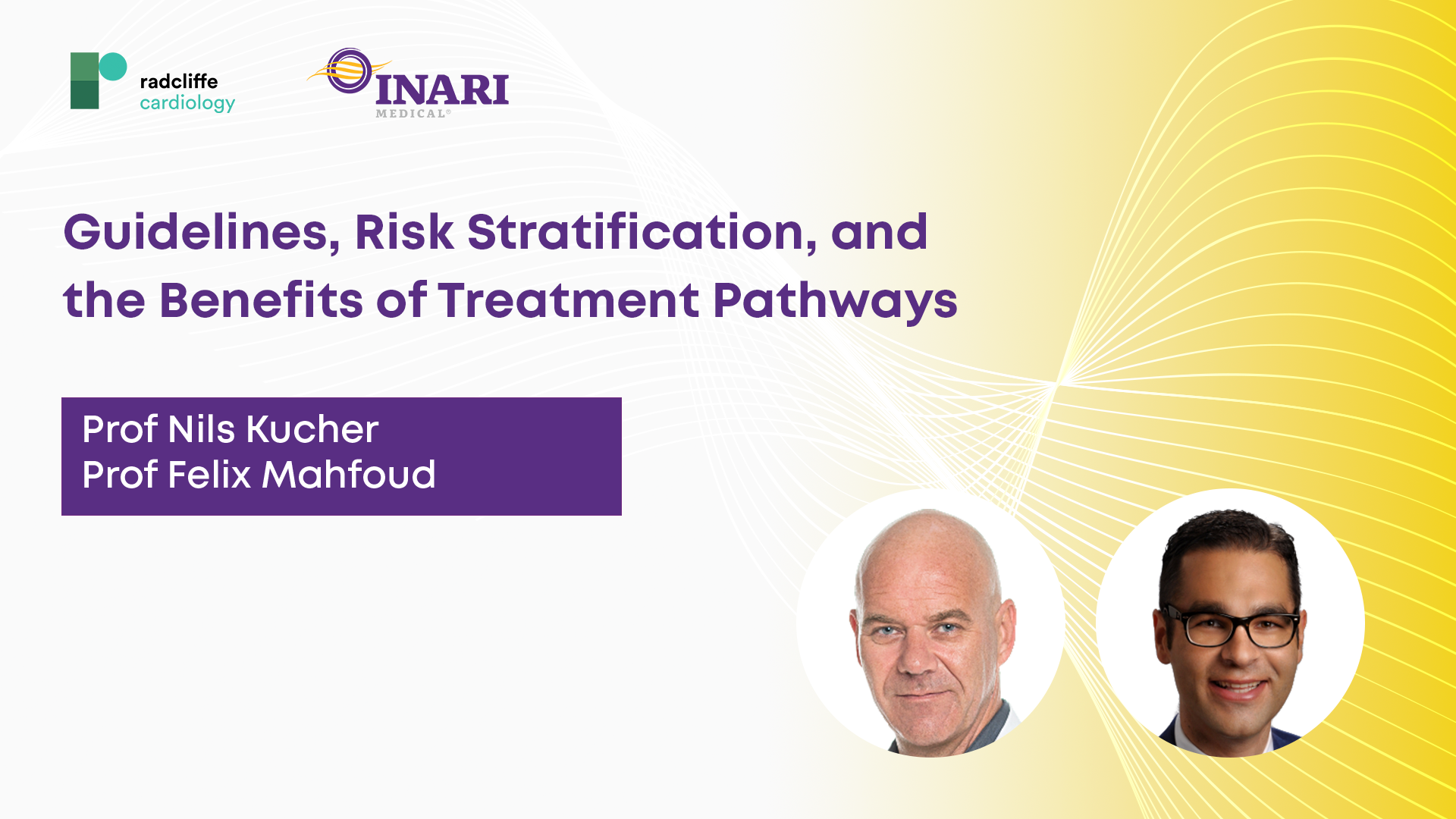 2m 7sPart 1 | Session 3 Guidelines, Risk Stratification, and the Benefits of Treatment Pathways
2m 7sPart 1 | Session 3 Guidelines, Risk Stratification, and the Benefits of Treatment Pathways -
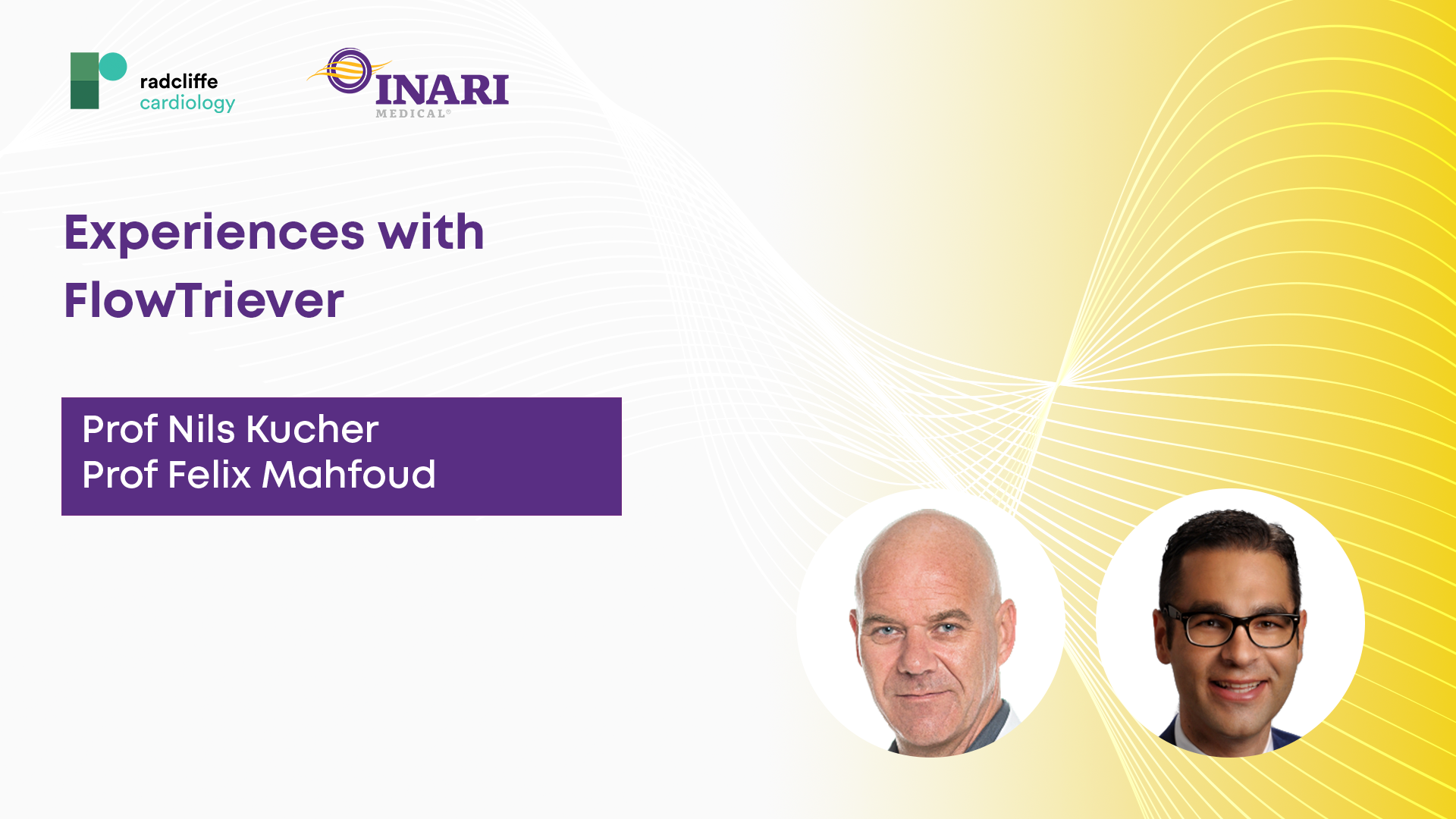 2m 56sPart 1 | Session 4 Experiences with FlowTriever
2m 56sPart 1 | Session 4 Experiences with FlowTriever
Overview
Pulmonary Embolism is a common disease with a challenging diagnosis. It is the third leading cause of cardiovascular mortality after heart attack and stroke. Despite high mortality rates, anticoagulation alone remains the mainstay treatment for nearly half of the patients diagnosed with PE. 20-50% of them have residual thrombus after receiving conservative treatment, developing life limiting complications after PE and increasing risk of adverse events, including recurrent VTE, heart failure, CTEPH development and death. Furthermore, today’s risk stratification does not include all proven predictors for mortality such as large and/or central clot burden, cardiogenic shock and concomitant DVT.
Why has the status quo in the treatment of acute PE not been challenged so far? How to advance the treatment and care PE patients? Watch the discussion between Professor Felix Mahfoud and Professor Nils Kucher on the current challenges and treatment options for Acute Pulmonary Embolism.
References:
Giri J, Sista AK, Weinberg I, et al. Interventional Therapies for Acute Pulmonary Embolism: Current Status and Principles for the Development of Novel Evidence: A Scientific Statement From the American Heart Association. Circulation 2019;140:e774–801.
Dzikowska-Diduch O, Kostrubiec M, Kurnicka K, et al. "The post-pulmonary syndrome - results of echocardiographic driven follow up after acute pulmonary embolism". Thromb Res 2020;186:30–5.
Barnes GD, Muzikansky A, Cameron S, et al. Comparison of 4 Acute Pulmonary Embolism Mortality Risk Scores in Patients Evaluated by Pulmonary Embolism Response Teams. JAMA Netw Open 2020;3:e2010779.
Ginanjar E, Sjaaf AC, Alwi I, et al. CODE STEMI Program Improves Clinical Outcome in ST Elevation Myocardial Infarction Patients: A Retrospective Cohort Study. Open Access Emerg Med 2020;12:315–21.
Jørgensen HS, Nakayama H, Raaschou HO, et al. The effect of a stroke unit: reductions in mortality, discharge rate to nursing home, length of hospital stay, and cost. A community-based study. Stroke 1995;26:1178–82.
Wendelboe AM, McCumber M, Hylek EM, et al. Global public awareness of venous thromboembolism. J Thromb Haemost 2015;13:1365–71.
Mathai SC, Ghofrani HA, Mayer E, et al. Quality of life in patients with chronic thromboembolic pulmonary hypertension. Eur Respir J 2016;48:526–37.
Sista AK, Miller LE, Kahn SR, Kline JA. Persistent right ventricular dysfunction, functional capacity limitation, exercise intolerance, and quality of life impairment following pulmonary embolism: Systematic review with meta-analysis. Vasc Med 2017;22:37–43.
Cohen AT, Agnelli G, Anderson FA, et al. Venous thromboembolism (VTE) in Europe. The number of VTE events and associated morbidity and mortality. Thromb Haemost 2007;98:756–64.

After watching, you will be able to answer:
- What are the biggest challenges with the current treatment of acute pulmonary embolism?
- Do the current guidelines for acute Pulmonary Embolism provide an adequate tool for risk stratification?
- Why is there a need for new treatments in acute Pulmonary Embolism?
- What are the benefits of having a PE treatment pathway setup and PERT in your hospital?
Target Audience
- Cardiologists
- Interventional Cardiologists
- Angiologists
- Hematologists
- Pulmonologists
- Cardiovascular Surgeons
- Intensive Care Medicine
More from this programme
Part 1
Immediate Impact Without the Need for Thrombolytics in the Treatment of Acute Pulmonary Embolism
Faculty Biographies

Felix Mahfoud
Professor of Cardiology and Chairman of the Department of Cardiology
Prof Felix Mahfoud is a Professor of Cardiology at the University of Basel and the Chairman of the Department of Cardiology at University Hospital Basel, Switzerland. He also holds a position as Visiting Professor at Harvard-MIT, Biomedical Engineering in Boston, MA.
Prof Mahfoud is board-certified in internal medicine, cardiology, intensive care medicine, emergency medicine and hypertension. He is Deputy Editor of the European Journal of Heart Failure and is a Councillor on the Board of the European Society of Cardiology (ESC) for 2024-2026. Additionally, he chairs both the ESC Communication Committee and the Scientific Documents Committee of the EAPCI for the 2024-2026 term.
He has published more than 500 publications in peer-reviewed journals and contributed as a wiring committee member to the 2019 ESC Guidelines for the…
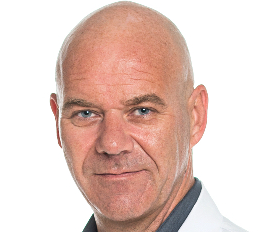
Nils Kucher
Professor of Angiology / Director University Clinic of Angiology
Prof Nils Kucher is a Professor of Angiology and Director University Clinic of Angiology at University Hospital Zürich, Zürich, CH.
He specialises in minimally invasive endovascular treatment of acute pulmonary embolism, acute deep vein thrombosis, and the post-thrombotic syndrome.
From 2016-2017 he was Chief Physician of Angiology at University Hospital Bern, where earlier he fulfilled the position of Staff Physician, Angiology & Cardiology, and Staff Physician, Interventional Cardiology.
Between 1999-2005 he undertook numerous fellowships both in Switzerland and the United States (Harvard Medical School). His research focuses on venous thromboembolism with more than 130 published articles.





